Guest post by Alison Hoover
From Belle Isle to Corktown to the Financial District, Detroit is full of Mother Nature’s beauty. While urban areas aren’t often associated with flora or fauna, the Motor City is home to a lot more than just Motown, Vernors, and Buddy’s Pizza.
Trees of all heights
Like the rest of the Mitten State, southeastern Michigan is dotted with trees of all heights and colors. While there are about 100 native species of trees here, here are the ones you’ll see everywhere around Detroit.
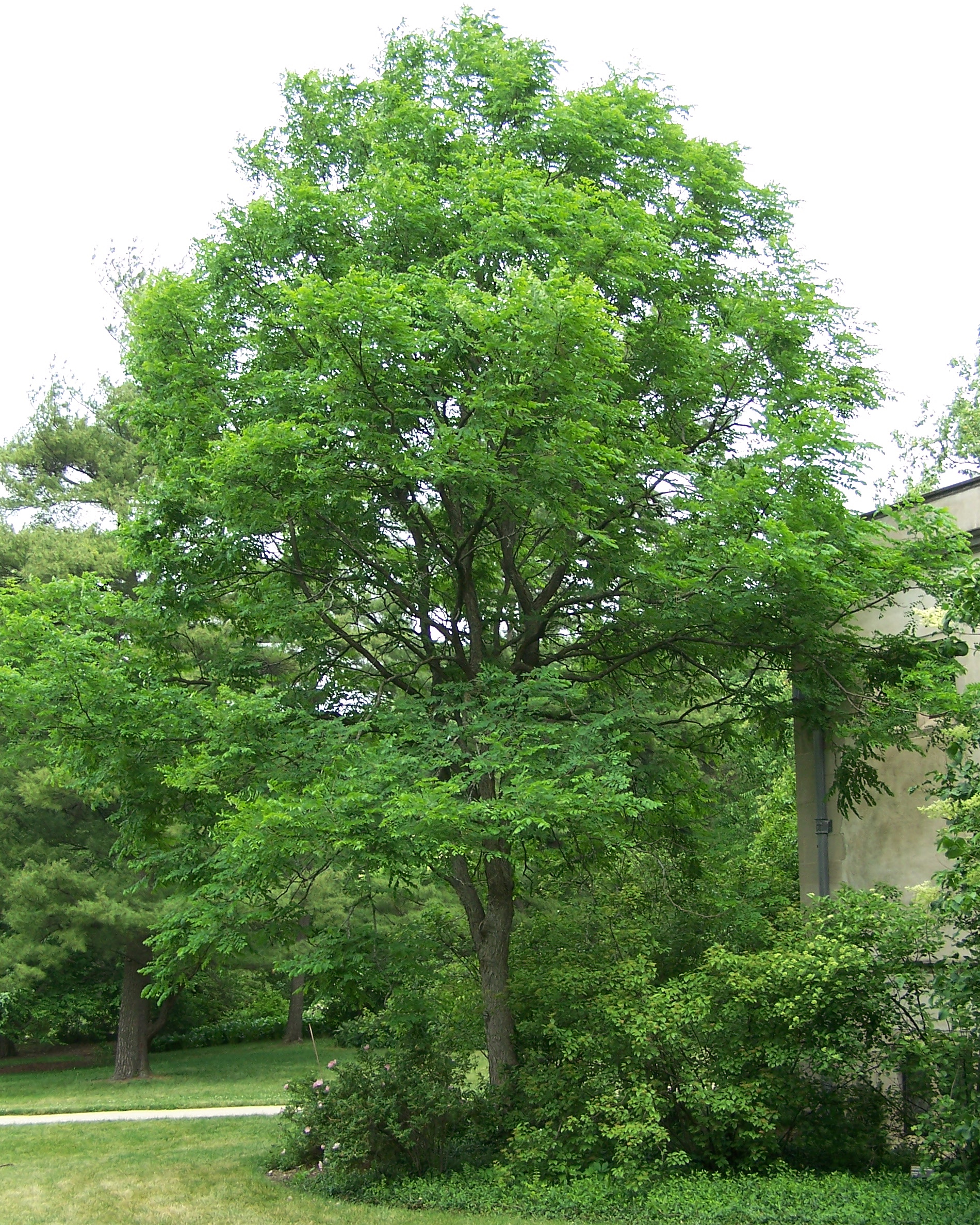
Kentucky Coffeetree
Don’t let the name fool you! This tree is native to the Lower Peninsula and offers stunning beauty all year. The branching limbs sprout bright foliage throughout the spring, summer, and fall. Kentucky coffeetrees adapt well to adverse conditions, including urban areas. If you plant one of these in your yard, keep in mind, you’ll need to prune it in winter or early spring. Proper pruning encourages strong growth, increases flower and fruit production, and improves the overall health of trees.
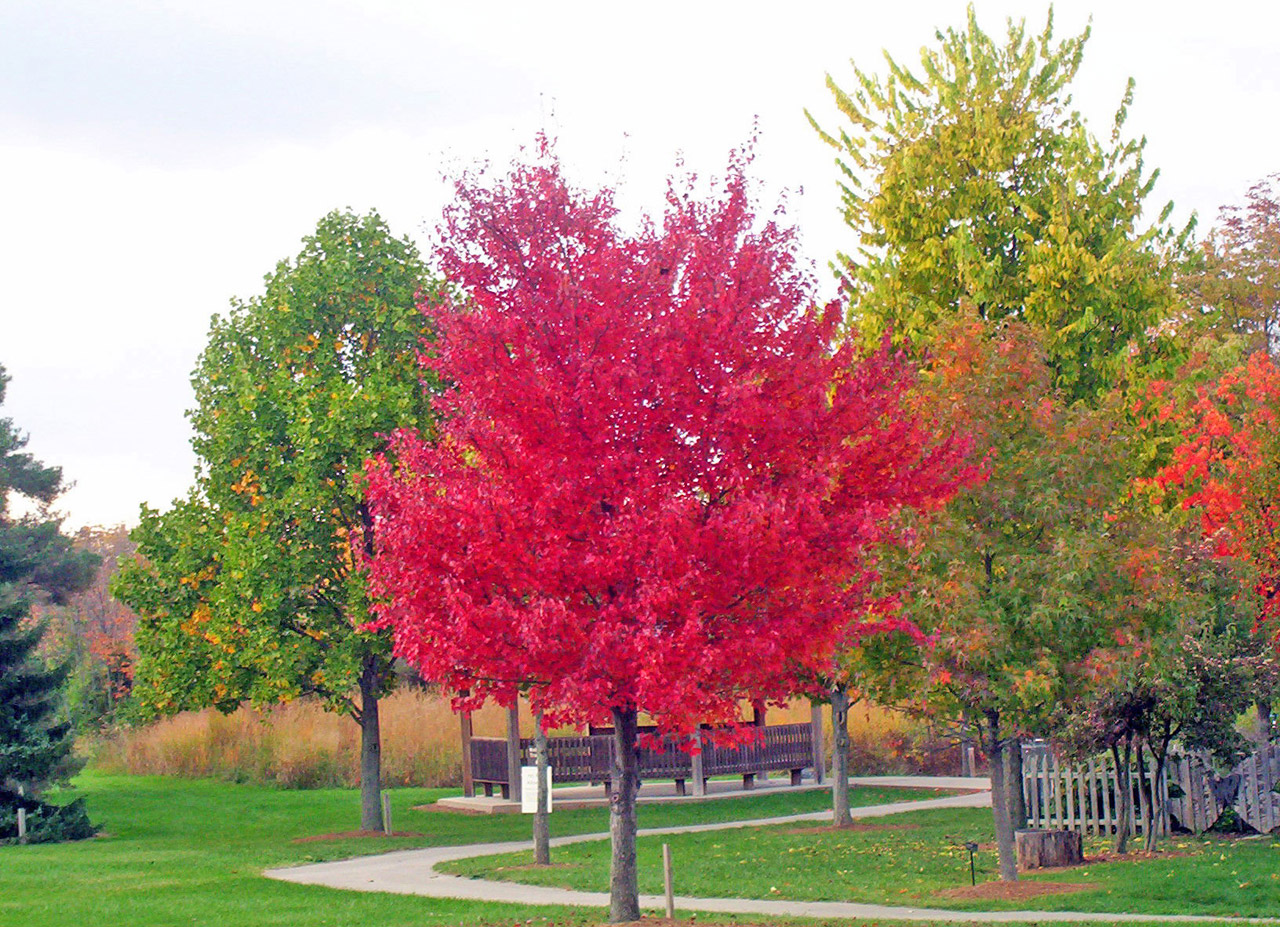
Red Maple
One of the Lower Peninsula’s most common arbors—red maples—can tower at heights of 90 feet. The abundant leaves give way to deep and bright shades of red before falling to the sidewalk in late fall. Maple leaves offer a delightful crunch underfoot as you walk through Detroit’s diverse and historical neighborhoods. Did you know that the City of Detroit completely surrounds two independent cities ? They are Hamtramck and Highland Park; the latter is the home of Henry Ford’s first automobile assembly line.
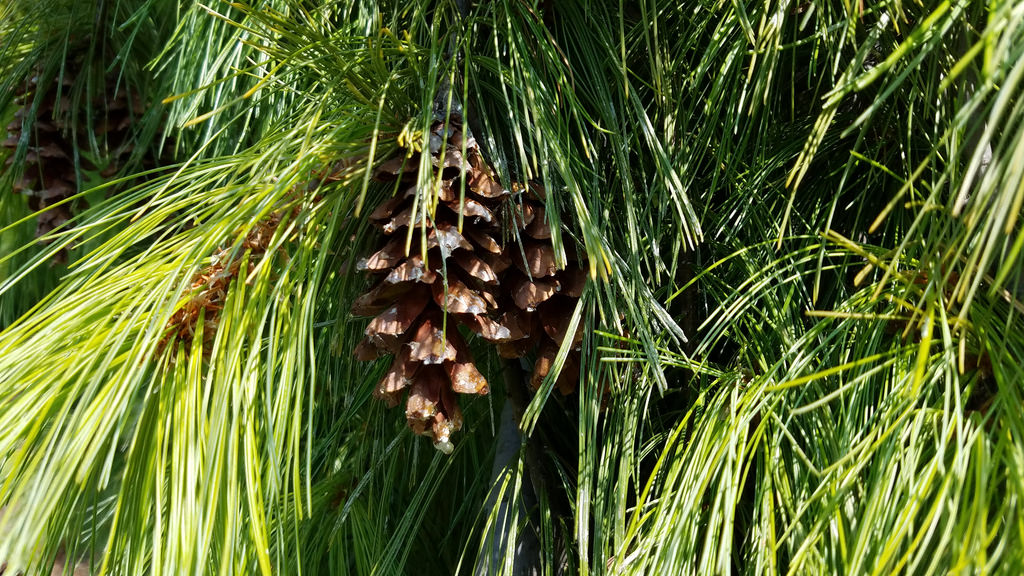
White Pine
White pine is the state tree and a common sight throughout Michigan. In winter, they look especially magical with a fresh blanket of snow. As a conifer, white pines keep their needles throughout the year and produce seeds bundled in cones. Be mindful of their cones on the sidewalk though—they don’t mix well with bicycle spokes!
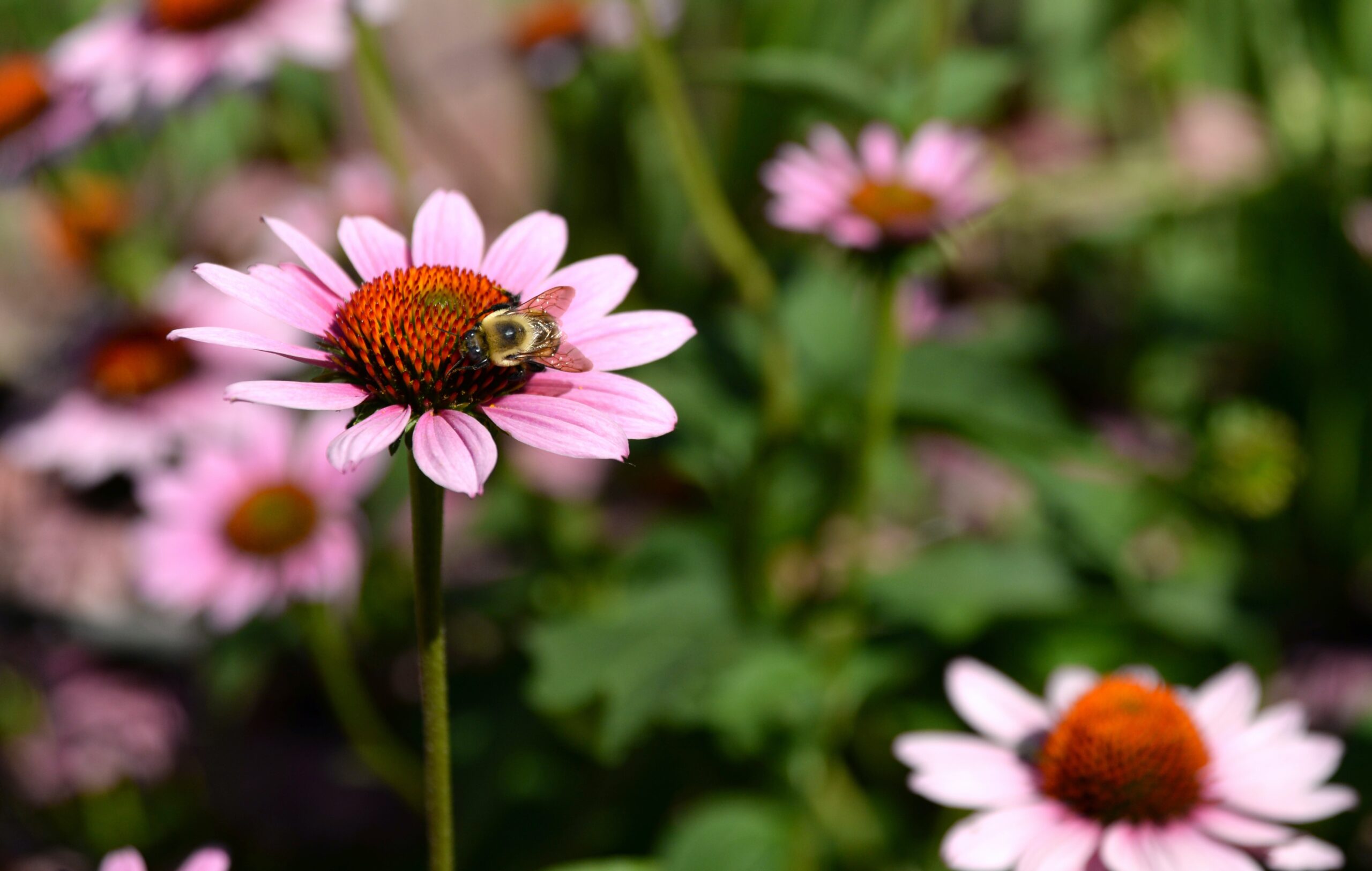
Beauty down low
Throughout Michigan, wherever you find sunlight and water, you’re also likely to find wildflowers. In an urban area like Detroit, you’re more likely to come across cultivated blooms.
Black-eyed Susan
Native Detroiters can’t help but think of home when they see black-eyed Susans. The droopy petals and dark pistils show vibrantly against green grass and urban canopy. Black-eyed Susans spread fairly aggressively, which is part of why they are so common in Michigan.
Daisy Fleabane
Much more appealing than the name suggests, daisy fleabanes are just like daisies but with many more petals. These flowers can grow three feet tall with blooms ten inches wide. In a cityscape, you’re more likely to find petite versions of these daisies.
Coneflower
These perennials appear year after year, often providing unexpected splashes of color. Echinacea, known as the purple coneflower, attract bees, butterflies, and other pollinators, making them a valuable working component of urban gardens.
Mid-ground green abounds
In addition to trees and flowers, Detroit is home to many shrubs, vines, and bushes. Keep an eye out for these plants as you meander through Hart Plaza or along the RiverWalk.
Cattails
Capable of reaching heights of 10 feet, the broadleaf cattail is native to Michigan and thrives on shorelines and riverbanks. You’ll be able to spot these unique perennials along the Detroit River and the shores of Belle Isle.
Michigan Holly
With cheerful red berries in late fall and early winter, Michigan holly thrives in even the toughest conditions. Birds are attracted to the fruit, so if you’re patient enough, you might spot winged visitors like bluebirds and robins.
Arrowwood
Dark berries and creamy white flowers contrast with the glossy green of this shrub. Birds and squirrels flock to the blue fruits. During fall, arrowwoods change colors, which is something everyone loves about Michigan autumns.
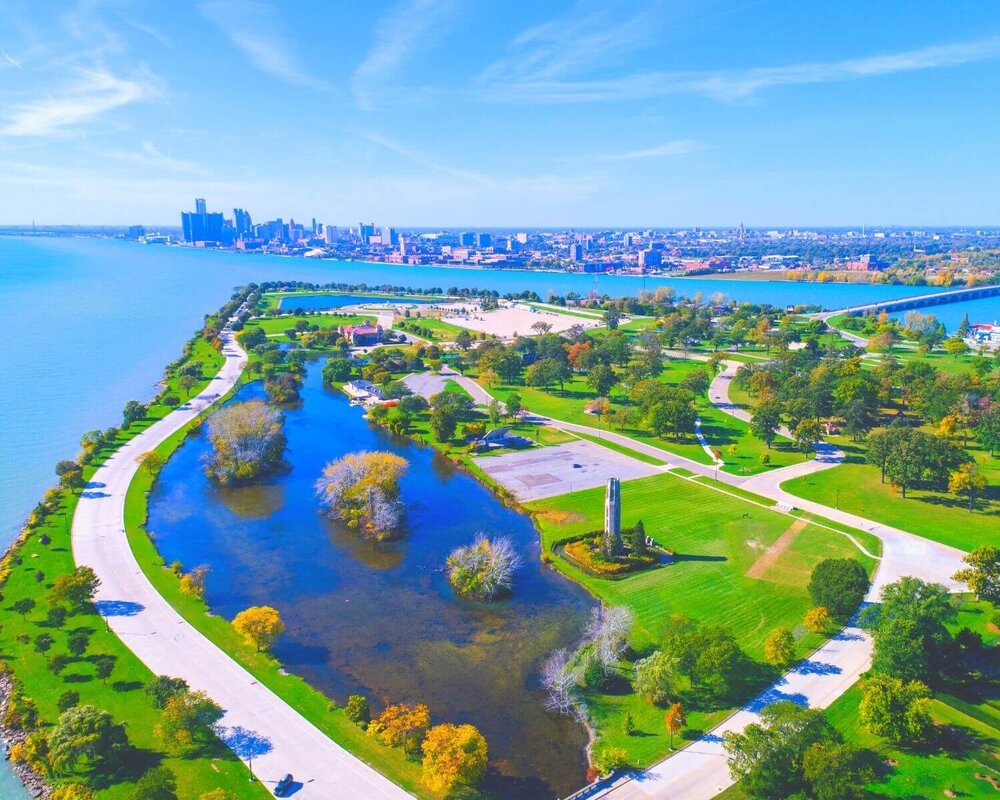
Instead of heading up north and hiking around Tahquamenon Falls, enjoy the variety of nature right here in the “D.” Forests exist anywhere you see trees, not just in large, wild areas. From the shadow of the RenCen to the inside of Anna Scripps Whitcomb Conservatory, you can find and enjoy all kinds of green—high and low.
Alison is a Detroit native through and through. She loves baking and reading, and grew up outside raising vegetables with her dad and tending flower gardens with her mom.

